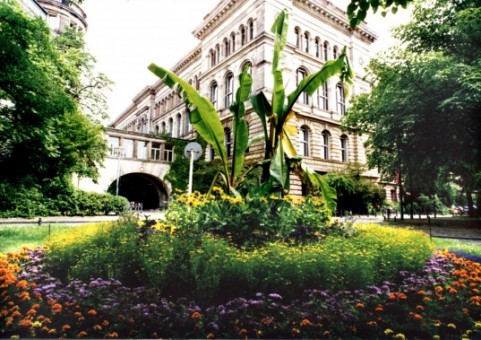General Information
Berlin University of Technology was founded in 1879 and has since developed into one of the largest universities of technology in Germany. In Electrical Engineering and Information Technology, TU Berlin achieved in sum the best overall score among all German universities in the most recent 2007 and 2010 editions of the Research Ranking of CHE (Centre for Higher Education Development).
The university is subdivided into seven schools covering areas of engineering sciences, natural sciences, architecture, economics and humanities. The Chair of Sustainable Electric Networks and Sources of Energy (SENSE) hosting the conference is part of the School of Electrical Engineering and Computer Sciences, which is located on the main Campus in Berlin Charlottenburg.
TU Berlin has a distinct international character. Of a total of about 30,000 students, around 6,000, come from 130 countries. TU Berlin is further proud of being a full member of two out of the three ‘Knowledge and Innovation Communities’ of the European Institute of Innovation and Technology (EIT) for the competence areas of climate as well as information and communication technology. The EIT was founded by the European Union in 2008 as a key university-industry initiative for reinforcing innovation capacity and excellence.

About Chair SENSE
The Chair of Sustainable Electric Networks and Sources of Energy (SENSE) has been started by Prof. Kai Strunz in 2007 and is part of the School of Electrical Engineering and Computer Sciences. The interests and competence of our about 10 researchers and Ph.D. candidates is centered on the modeling of heterogeneous energy systems with a focus on the smart grid. On the one hand, we contribute to important European initiatives as for example as a Work Package Leader in the Framework Program 7 (FP7) project MERGE (Mobile Energy Resources in Grids of Electricity) or as the Activity Lead for the project European Virtual Smart Grid Laboratory in the European Institute of Technology. On the other hand, we create energy solutions applied to the situation in Germany or the city of Berlin. Examples include the project NET-ELAN funded by the Federal Department of Economics and Technology (BMWi) on the road-mapping for electric vehicle grid integration in Germany, or smart grid modeling for Berlin.
We cherish cooperating with IEEE on the organization of the ISGT Europe 2012. For more information on our view of the smart grid, please refer to the IEEE interview.

